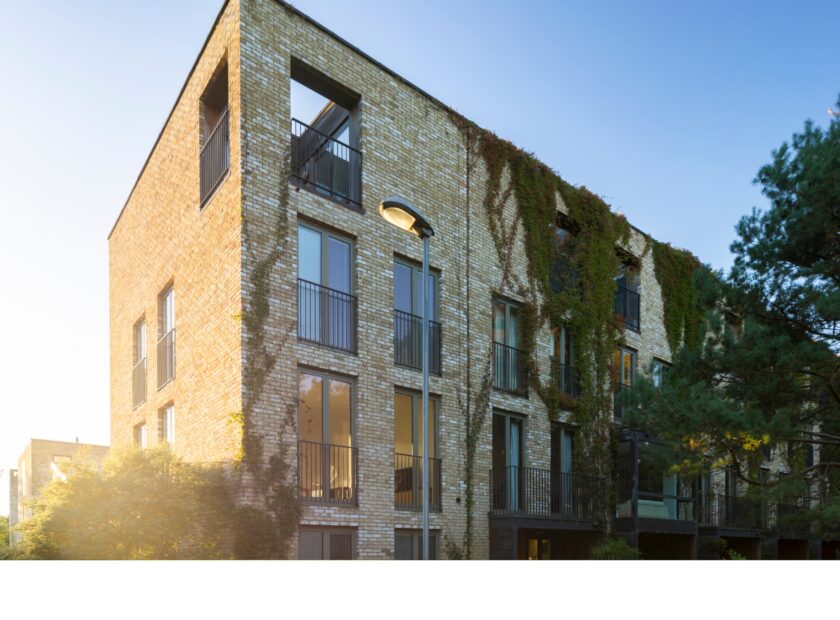Tens of thousands of new homes have legally bypassed the planning system in England since 2013, undermining place making, local democracy, jobs and wellbeing says new report from the Town & Country Planning Association, just weeks after government announced expansion of the practice.
In the wake of the government’s unprecedented expansion of permitted development rights (PDR), which will allow more buildings to be converted into homes while bypassing the planning system, the Town & Country Planning Association (TCPA) has launched a new report exploring the devastating impacts PD rights have already had on place making over the past seven years.
Building on previous research which explored the impact of PD on residents, the TCPA’s report, ‘No place for placemaking‘ focuses on the wider impacts of permitted development on neighbourhoods and communities. Despite research from Public Health England and other authorities establishing clearly that our neighbourhoods are crucial to communities’ health and wellbeing, the report finds that permitted development consistently undermines councils’ efforts to plan for healthy and safe places.
Co-produced by the TCPA and researchers from the London School of Economics, the report is based on the in-depth analysis of case studies collected by both organisations over recent years. It finds that permitted development has four key types of impacts:
- It has made real place making impossible in many places by effectively removing acres of land in key areas from councils’ influence, and preventing them from securing and coordinating development in sustainable, safe areas.
- It has deprived councils of funding for infrastructure – greenspace, community facilities, healthcare, roads and affordable housing – that is essential to new and existing communities’ wellbeing because they are unable to collect Section 106 payments on developments which come through this route.
- It threatens local jobs and businesses because councils are unable to stop employment land in their areas being converted to housing. This has the potential to force local people into unsustainable communities.
- It has undermined local democracy and left communities unable to influence their local environment as it changes over time.
The report concludes that the government’s current approach to regulating the quality of new homes is broken, and argues that we do not need less regulation, but better regulation, which guarantees that all new homes and neighbourhoods, delivered through PDR or the government’s reformed planning system, support residents’ health and wellbeing.
The TCPA is campaigning for a Healthy Homes Act, which would require all new homes and neighbourhoods to be of decent quality, and effectively outlaw those which undermine residents’ health and wellbeing. The charity launched its final version of the Bill for England at a joint event with the Healthy Homes and Buildings APPG last Thursday, which was attended by experts from across the sector and more than 15 MPs and Peers from all major parties.
You can find out more about the Healthy Homes Act campaign here: https://www.www.tcpa.org.uk/healthy-homes-act.
Fiona Howie, Chief Executive of the TCPA said: ‘We are clear that permitted development rights are delivering too many poor quality homes but also having wider, negative impacts. While the government have made some recent changes that will prevent homes being built without windows, more needs to be done if they really are serious about the importance of beauty, good design and place-making.
‘We do need more homes, but they need to be good quality, rather than homes that are undermining people’s health and wellbeing as well as the quality of places. We believe new legislation in the form of a Healthy Homes Act is a first step in preventing poor quality homes being built. But we also need the government to recognise that we need better regulation rather than less.’
London School of Economics’ Professor Nancy Holman said: ‘With the Government set to change planning policy yet again, it would be wise to reflect upon the some of the damaging environments created by their policies on office and warehouse conversions to residential. In a bid to ‘get the planning system moving’ small, substandard and sometime dangerous homes have been created, often housing our most vulnerable populations.’
ENDS
About the TCPA
The Town and Country Planning Association campaigns for the reform of the UK’s planning system to make it more responsive to people’s needs and aspirations and to promote sustainable development.
Notes to editor:
Since 2013 it has been possible to convert office buildings and light industrial buildings into homes through permitted development rights, and over 100,000 homes have been created through this route. This figure is compiled using MHCLG’s Table 120: components of housing supply; net additional dwellings, England 2006-07 to 2018-19, which was accessed online on 02/09/20. See https://www.gov.uk/government/statistical-data-sets/live-tables-on-net-supply-of-housing
From September 2020, it will be possible to add additional stories to homes, demolish commercial buildings to replace them with homes, and turn shops into homes, all without planning permission, demolish commercial buildings to replace them with homes, and turn shops into homes, all without planning permission.
For further information or comment, please contact [email protected] or call +44 20 8132 5455
Please download the report here.



